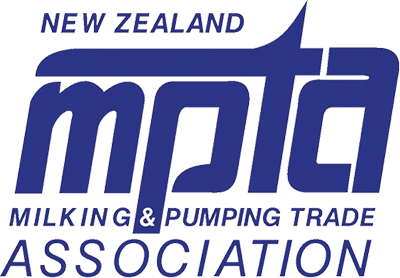Fonterra Minimum Standards For Water, Effluent And Nitrogen Management On Farm
Monday, 8th April 2013 As you know, dairy farmers operate complex and demanding businesses in which they manage ever-increasing responsibilities and requirements. Regional councils are continually reviewing the rules around dairying, with particular emphasis on water quality. In addition, our customers and consumers want to know how our dairy products are produced, especially when it comes to environmental performance.
To provide farmers with clear minimum standards, on-farm support, best practice information and education in a variety of environmental areas, Fonterra have developed the Supply Fonterra programme.
The minimum standards for effluent management, waterway management, and nitrogen management are highlighted below and detailed in the 2012/2013 Suppliers' Handbook which contains the terms and conditions of supplying Fonterra. Please consider how these standards affect or influence your clients' businesses.
Fonterra also advise you to be aware of additional regional council rules and regulations applicable to dairy farms in specific regions or catchments. These rules could relate to water use and allocation, nutrient management, riparian planting and stock crossings. Contact the relevant council for more information.
Supply Fonterra covers both environmental and milk quality programmes. If you would like more information on any Supply Fonterra minimum standard or the overall programme, please contact the Environmental Programme team via 0800 65 65 68.
Yours sincerely
Lisa Payne
Supply Fonterra Programme Director
To provide farmers with clear minimum standards, on-farm support, best practice information and education in a variety of environmental areas, Fonterra have developed the Supply Fonterra programme.
The minimum standards for effluent management, waterway management, and nitrogen management are highlighted below and detailed in the 2012/2013 Suppliers' Handbook which contains the terms and conditions of supplying Fonterra. Please consider how these standards affect or influence your clients' businesses.
Effluent Management
As of 1 June 2012, suppliers must meet the following minimum standard:- Have systems in place that manage all effluent sources in a manner that complies with relevant regional council resource consent, or permitted activity rules, 365 days a year.
In the event this minimum standard is not met:
- Work with a Sustainable Dairying Advisor to create an Environmental Improvement Plan that sets out actions required to achieve the minimum standard and the timeframe within which this is to be achieved;
- Implement the actions in the Environmental Improvement Plan within timeframes specified.
Waterway Management
As of 1 June 2012, suppliers must meet the following minimum standards:- Exclude stock from all waterways that permanently contain water and that are, at any time of the year, wider than 1 metre and deeper than 30cm at any point within or immediately adjacent to the boundary of the farm. Fonterra recommends that farmer suppliers consider their responsibilities for excluding stock from waterways when stock are being grazed off the dairy platform;
- Farm races must include bridges or culverts where stock regularly cross a waterway;
- Sediment and/or effluent shall not be discharged into any waterway where it is likely to result in a significant adverse effect on the environment;
- Provide accurate information on the location of fencing and regular crossings during the Farm Dairy and Environmental Assessment.
In the event that the minimum standards are not met:
- Work with a Sustainable Dairying Advisor to create an Environmental Improvement Plan that sets out the actions required to achieve the minimum standard and the timeframe within which this is to be achieved*; and
- Implement the actions in that Environmental Improvement Plan within the timeframes specified.
Nitrogen Management
As of 1 June 2012, suppliers must:- Provide accurate information to Fonterra about their farm system as detailed in the Dairy Diary by 31 May each season; and
- Provide evidence to support these records upon request.
Fonterra also advise you to be aware of additional regional council rules and regulations applicable to dairy farms in specific regions or catchments. These rules could relate to water use and allocation, nutrient management, riparian planting and stock crossings. Contact the relevant council for more information.
Supply Fonterra covers both environmental and milk quality programmes. If you would like more information on any Supply Fonterra minimum standard or the overall programme, please contact the Environmental Programme team via 0800 65 65 68.
Yours sincerely
Lisa Payne
Supply Fonterra Programme Director


